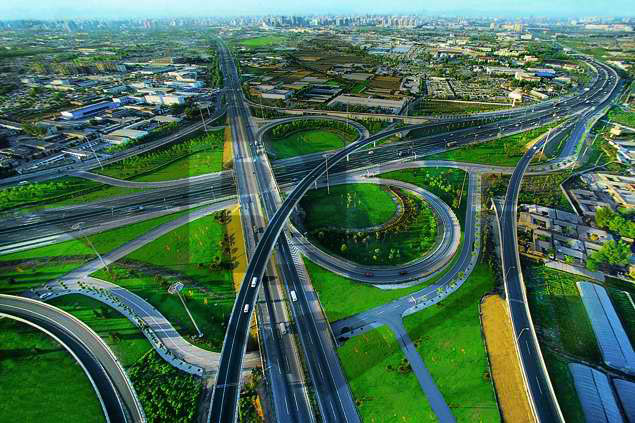Western Peripheral Expressway: To divert heavy polluting vehicles from Delhi, Prime Minister Narendra Modi is all set to inaugurate the much-delayed Kundli-Manesar-Palwal Expressway in Haryana’s Gurgaon district today. Also, known as the Western Peripheral, the project is a part of the Peripheral Expressways project, which was first conceived in the year 2003 in order to reduce the pressure of non-destined commercial transit traffic in the national capital. Thus, the project was divided into Eastern Peripheral Expressway, inaugurated earlier this year and Western Peripheral Expressway. With the Western Peripheral Expressway, the national capital has also got its 4th ring-road. Here are 10 facts about the 135-km long Western Peripheral Expressway, and why it is an important infrastructure project:
1) The Western Peripheral Expressway project has been developed at a cost of Rs 6,400 crore out of which Rs 2,788 crore was spent to acquire 3,846 acres of land.
2) The stretch from Kundli to Manesar, which is over 83 km, would have 56 underpasses/agricultural vehicular underpasses, 14 major/minor bridges, 7 intersections and 7 toll plazas. The width of the median at this stretch is of 8 km.
3) On the other hand, the Manesar-Palwal stretch, which is over 52 km, would include 32 underpasses/agricultural vehicular underpass, 3 intersections and 4 toll plazas. The toll collection on Manesar-Palwal stretch was started on July 15, 2018.
4) The design speed for light vehicles on this expressway is of 120 kmph, while for heavy vehicles, it is of 100 kmph.
5) Now, with the opening of the Western Peripheral Expressway, there will be high speed connectivity between northern and southern districts of Haryana. The Western Peripheral Expressway links to the National Highway 1 (Panipat to Delhi), National Highway-8 (Jaipur-Gurgaon-Delhi road), National Highway-10 (Hisar-Rohtak-Delhi road).
6) Also, the Western Peripheral Expressway will provide uninterrupted high-speed link for traffic, especially commercial traffic, from Haryana to neighbouring states. Additionally, the expressway would decongest the road traffic from the national capital and thereby reduce pollution. Various reports suggest that with the opening of the Western Peripheral Expressway, around 50,000 less vehicles will enter Delhi roads per day!
The design speed for light vehicles on this expressway is of 120 kmph, while for heavy vehicles, it is of 100 kmph.
7) Interestingly, two rows of shrubs will be planted in the median. Also, on each side, two rows of trees such as Neem, Arjun, and Sheesham would be planted, a Haryana government spokesman was quoted saying in a PTI report.
8) Additionally, to conserve and save water, a drip irrigation system would be adopted for median plantation, the spokesman said.
9) To improve the aesthetic look of the expressway, fountains, historical and cultural monuments have been made at various locations. Also, four sites have been earmarked for wayside amenities.
10) An ambulance, a crane and a police patrol vehicle with a helpline number have been stationed at a distance of every 20 km for speedy response in case of emergencies or accidents.
Source:FE
Image Courtesy: India TV
You may also like
-
Trade Connect E-platform For Exports Is Single Window, Fast, Accessible And Transformational: Shri Piyush Goyal
-
Dot Simplifies Approval Processes For Telecom Licenses And Wireless Equipment
-
Coal Production and Supply Trends on Positive Trajectory
-
Union Minister To Release Booklets On Promotion Of Indigenous Species & Conservation Of States Fishes
-
2nd India-Japan Finance Dialogue held in Tokyo on 6th September, 2024
